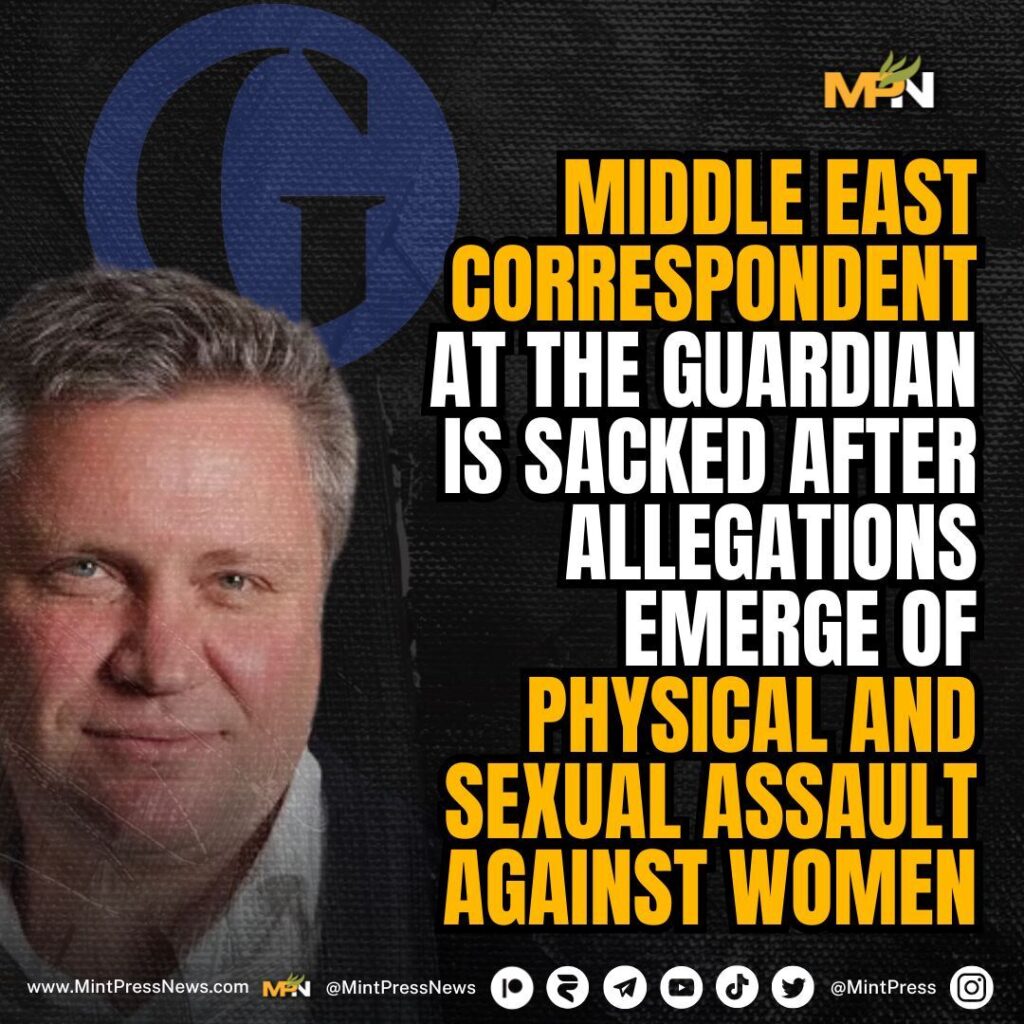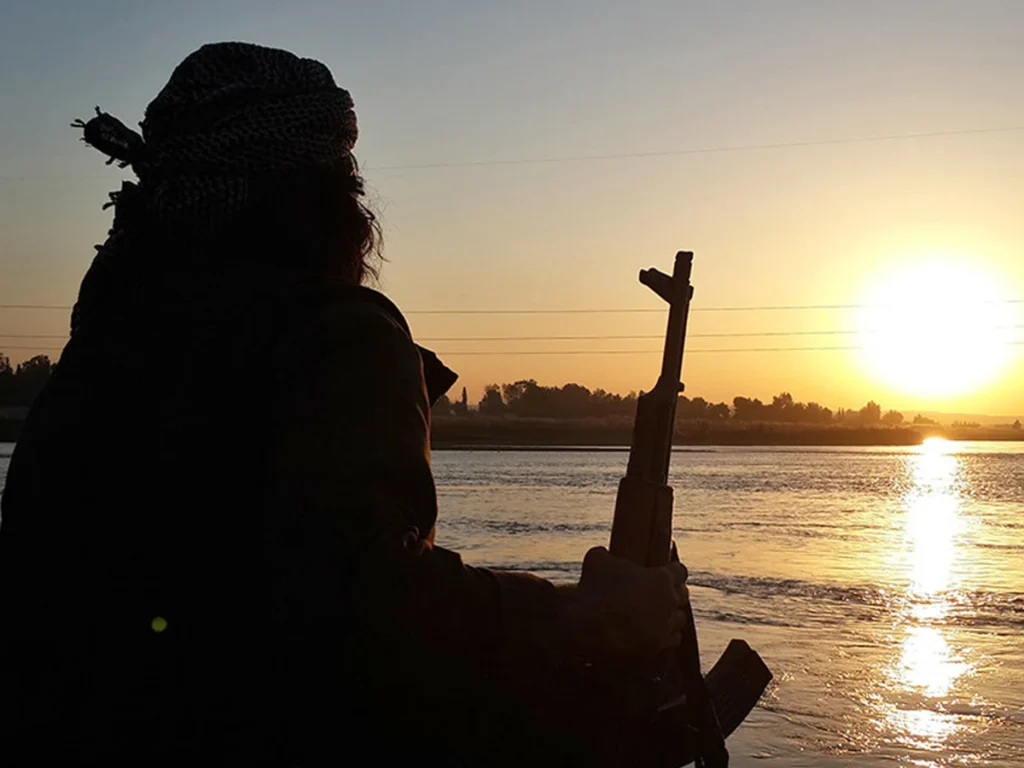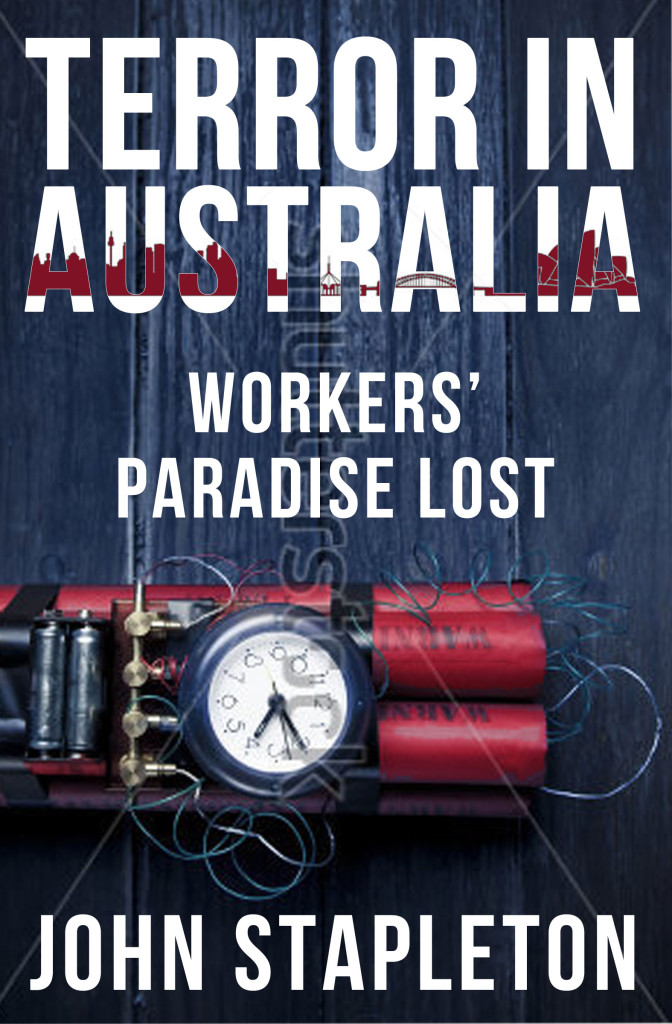By John Stapleton
Martin Chulov is one of the single most outstanding journalists to have ever emerged from Australia, his coverage of Muslim radicalisation at the turn of the century without peer.
Formerly employed by The Australian, his on-the-ground knowledge of radical Islam in Australia and his excellent sources and connections within Australia’s intelligence and policing communities, combined with a strong work ethic and natural writing talent, made him one of the newspaper’s leading lights. He went on to become one of the world’s best journalists, writ large on a global scale.
Australia was always too small a pond for such a giant talent. Moving to the Middle East in the early 2000s, in 2005 taking up the prestigious role of Middle East correspondent for The Guardian.
His truly stunning work on and unique understanding of the Islamic State won him one of the world’s most prestigious prizes, Britain’s Orwell Prize, in 2015. He also won the The UK Foreign Press Association award for Journalist of the Year in the same year.
Chulov has not been published by The Guardian since April of this year.
For anyone following Chulov’s excellent work, the first knowledge of his puzzling absence to leak into the public domain came via the popular UK tabloid The Evening Standard earlier this month, under the headline “Guardian journalist’s byline page deleted after sudden exit” and the strapline “Martin Chulov has not written for the paper since April following an internal investigation”.
The paper reported: “Guardian News & Media, the newspaper’s publisher, declined to comment when approached by The Standard. Chulov — a reporter of 29 years — has been writing on the Middle East for them since 2008. He is usually based in Beirut, where he lives with his Lebanese wife and daughter.”
In a statement reported to the Mail on Sunday, which also carried the story, Chulov said: “The allegations against me are categorically denied. Many of them have been found to be untrue following independent investigation.”

In case anyone was in doubt over the nature of the allegations a group calling itself Mint Press News, arguably unhelpfully and perhaps with an ulterior motive, made it all very clear. The image is now being spread maliciously online.
This is not just an era of widespread deceit coming from the highest echelons of government, but an era when many publications have been shown to be fronts for or closely connected to the intelligence agencies.
The group wrote on the free speech platform X: “The Guardian’s Martin Chulov is sacked as a Middle East Correspondent following allegations that he sexually assaulted and hit women.
“The 52-year-old was put through an internal investigation by The Guardian newspaper, after two women came forward with separate allegations involving sexual and physical assault, leading to media outlet terminating their former employee. The internal investigation was concluded in July and occurred not long after the media correspondent was questioned by British police regarding such conduct.”
We may never know the veracity of the claims. There is at least as far as public acknowledgement goes no court case and the claims made are anonymous.
We live in an age of government disinformation and an age of false allegations, where accusations of sexual misconduct are regularly used for political purposes against high profile figures. Witness in recent times Russell Brand and Julian Assange.
As someone who worked with Martin Chulov at The Australian and found him to be entirely honourable the allegations appear highly unlikely to be true.
Perhaps, as a highly intelligent and accomplished journalist, Chulov somehow fell fowl of the intel agencies, and this was a messy but effective way to discredit him.
But who would know in this murky realm.
Martin Chulov’s broke or covered many of the best stories of the era.
Named Journalist of the Year by the Foreign Press Association in 2015, he also took out Feature Award of the year for his feature Islamic State: The Inside Story, a masterpiece in and of itself. It is the amazing story of how the America’s feared Camp Bucca incubated Islamic State.
It took Chulov two years to negotiate the story. It was at Camp Bucca that a principle source for the story, a senior commander within Islamic State who used nom de guerre Abu Ahmed. It was here that the jihadist first met Abu Bakr al-Baghdadi, the emir of ISIS.
As Chulov records, it was his misgivings over the increasing brutality of Islamic State which convinced Abu Ahmed to speak to the Guardian in a series of conversations. The prisoners had been terrified of Bucca, but quickly realised that far from their worst fears, the US-run prison provided an extraordinary opportunity.
Abu Ahmed told Chulov: “We could never have all got together like this in Baghdad, or anywhere else. It would have been impossibly dangerous. Here, we were not only safe, but we were only a few hundred metres away from the entire al-Qaida leadership.”
You can read the story in full HERE.
That’s just one of the many highlights of Chulov’s career in the Middle East. There are way too many to document here.
Briefly, here are a couple.
Interviewing the mother of Osama bin Laden

Dabiq and the Apocalyptic Vision of Islamic State

In this instance it is fair to ask: In these strange circumstances, is this a simple a case of the a man who knew too much?


The following is an extract from my book Terror in Australia referencing Martin Chulov and his book Jihad in Australia:
The escalating jihad threat within Australia in 2015 had all been known, had all been written about before.
It had come with ample warning that there were radical Islamic preachers stirring up jihad in the Australian suburbs; that just as with Afghanistan the invasion of Iraq would inflame the Muslim population and increase the country’s domestic terror threat; that Australia was already a prime target for terrorist attacks.
Before he went on to a broader canvas, Australia had been gifted with one of the supreme journalists working in the field, former colleague at The Australian Martin Chulov. His 2006 book Jihad Australia: The battle against terrorism from within and without was the most comprehensive record ever compiled on the early development of the jihadist threat within Australia.
Chulov had been enormously proud of Australian Jihad, and signed a copy for me.
Australian Jihad was withdrawn shortly after publication and pulped without any proper public explanation.
The book was a masterful reprise of material which had to a large extent already been published in The Australian. The paper at the time employed some of the best media lawyers in the country, and the book was not being launched into the world without careful legal preview.
The crushing of the book smelt of deliberate government suppression. A number of orders limiting the media’s coverage of one of the cases in the book had been issued by the Victorian Supreme Court, orders which would not be lifted for a number of years. Perhaps it was simply a case that the book was too big an affront to the billions of dollars of taxpayer funds the Australian government had spent massaging the myth of Australia as a multicultural paradise.
The publishers Pan Macmillan ignored a request for information as to whether or not they came under any government pressure to withdraw the book from sale.
But it was still possible to find a few copies of Australian Jihad. You just had to know where to look.
With all the strands of the early development of the terrorist threat in Australia pulled together into one place, what Australian Jihad demonstrated more than anything else was: the politicians of Australia had been lying to the people all along about the threat the religious beliefs of the Muslim minority posed to the country’s traditionally easy going way of life.
In this case the blurb was spot on: “Australian Jihad reveals details of key plots against the nation and its people abroad; discloses a shocking highly emotional sequel to the first Bali bombings; uncovers how the decade of developments shaped the very real threat from within; and outlines how Australia’s spies are desperately trying to evolve from easy beats to contenders able to take on their new adversary. Detailing the trailblazing visits to Australia of the global jihad pioneers; the clandestine mission of Frenchman Willie Brigitte; the trials and tribulations of the troubled wayfarers David Hicks, Mamdouh Habib, Jack Thomas and Mathew Stewart; and the 2005 counter terrorism arrests of 22 Australians accused of preparing a catastrophic strike against their countrymen, the book chronicles a growing menace.
“With unparalleled access to security sources both here and overseas, Chulov gives us the real stories behind the headlines, and in doing so has proved that the truth is often scarier than even the most frenzied conjecture.”
Why on Earth was a book like that not available for sale? Why on Earth was a book like that not compulsory reading? Any Australian politician who had not read the book was not doing their job.
“We have been far more central to radical Islamists’ priorities than we ever recognised — and the radicalism they are peddling took root in Australian society more than a decade ago,” Chulov wrote. “The lightning rod of Afghanistan has to a large extent been replaced by Iraq, which continues to have a profound impact on radicalised Muslims in Australia and Southeast Asia. Home-grown radicals are drawing strength from what they see as the anger and suffering of their brethren abroad. Existing radical groups are mutating. Others are mushrooming.
“A strategic defeat for the US-led coalition, or even a tactical withdrawal, would embolden the movement for decades to come. The Australian government can no longer disassociate itself from the perceived Crusader alliance. Since it was first legitimised as a target in November 2001 (when Osama bin Laden issued threats against the country), Australia has been nominated more than a dozen times… Stopping terror at its source is now just as important in Australia as it is in the Islamic nations from where the jihadi mindset hails.”
In other words the then Prime Minister of Australia Tony Abbott already knew or most certainly should have known when he announced on 15 September, 2014 that Australia was heading back into war in Iraq that the decision would further radicalise the local Muslim population, significantly increase the domestic terror threat and particularly with the use of discredited drone attacks would in all likelihood, as turned out to be the case, drive jihadi recruitment and strengthen the power of Islamic State. All the while putting the lives of Australian soldiers at risk.


